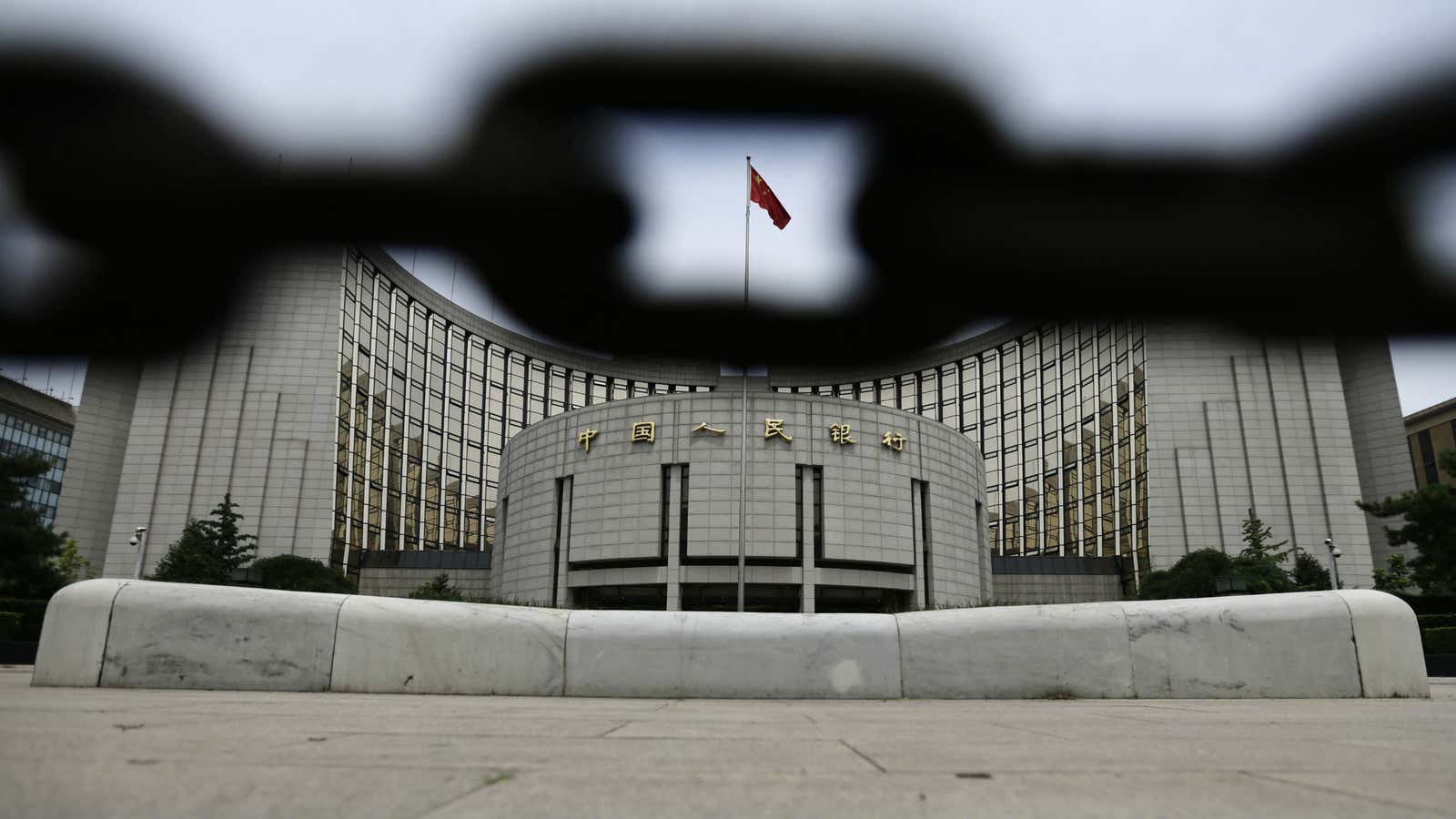China’s latest massive monetary easing policy, announced this weekend, could add more than $200 billion in liquidity to the economy—but only if the government can convince the mostly state-run banking sector to actually make new loans.
The central bank reduced the reserve requirement ratio, or the percentage of deposits that banks must keep in cash, by 1% to 18.5%—the most drastic cut since the financial crisis of 2008 (China’s ratio is still quite high by global standards). Reserve requirements for China Agricultural Development Bank and rural and village banks were reduced even further, by 2%.
Theoretically, the cuts free up about 1.3 trillion yuan ($209 billion) for banks, with the idea that they would use the money to make additional loans, particularly to China’s non-state owned companies. But the reality is not so simple. Despite ongoing pressure from the central government, China’s banks have been reluctant to lend, especially to smaller companies and private enterprise.
Even as the government has eased bank reserve ratio requirements from a record high of 21.5% in 2011, small- and medium-sized businesses have had continued trouble getting loans. These businesses, which provide an estimated 80% of China’s employment, have turned instead to costly off-balance sheet loans, loan sharks and even pawnbrokers, which have become a legitimate and substantial part of China’s finance industry.
This lack of lower-cost money is a drag on China’s overall economic growth. The day before the central bank move was announced, premier Li Keqiang begged the country’s big banks to make more loans to small businesses. “The real economy is like the body, and the finance sector is like the blood,” he said. “The problem with the Chinese finance sector is not anemia, but poor circulation of the blood.”
Li and the central bank are trying drastic steps to get that blood moving. In addition to reducing reserve ratio requirements, China’s bank regulator has approved the creation of five new private sector banks, and is reviewing 40 more new bank applications, an official told People’s Daily this month. These new banks would presumably be less conservative, like China Minsheng Bank, the country’s first private bank.
But the latest reforms may pump more funds into the already overinflated property sector instead, at least judging from the line of potential buyers gathered outside this Shanghai development over the weekend (link in Chinese). Thanks in part to the reserve ratio cut, the developer said he expects prices—already at a healthy 10 million yuan for a 1,700 square foot apartment—to go up even more.
Zheping Huang contributed reporting.




